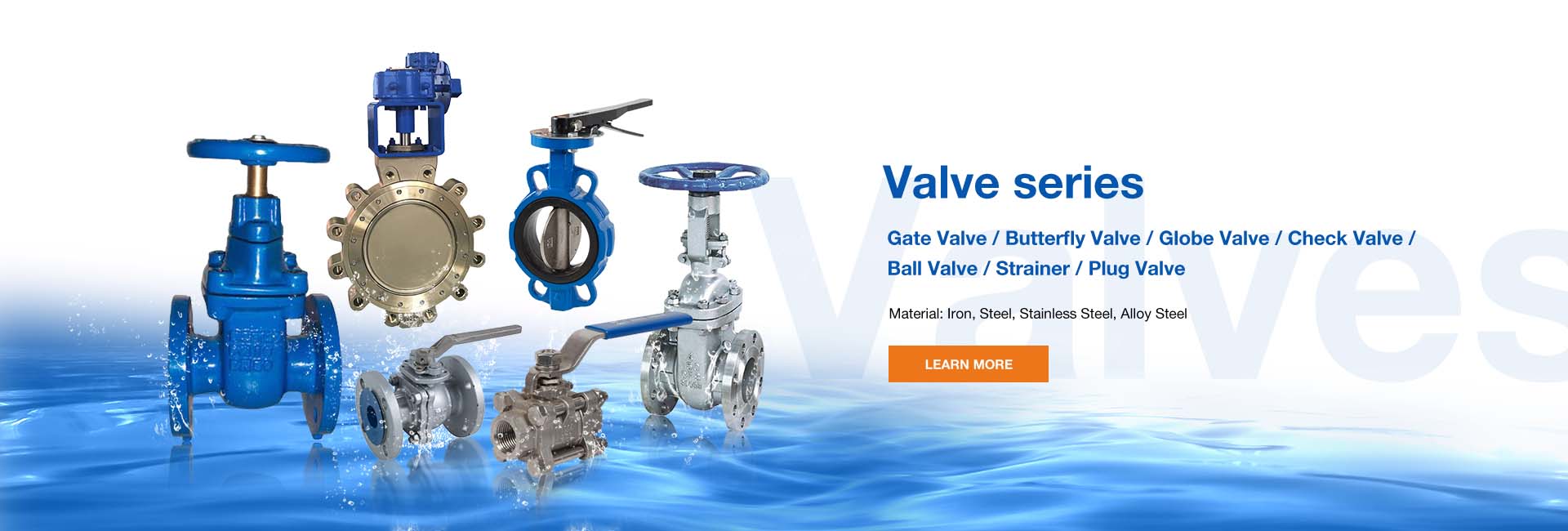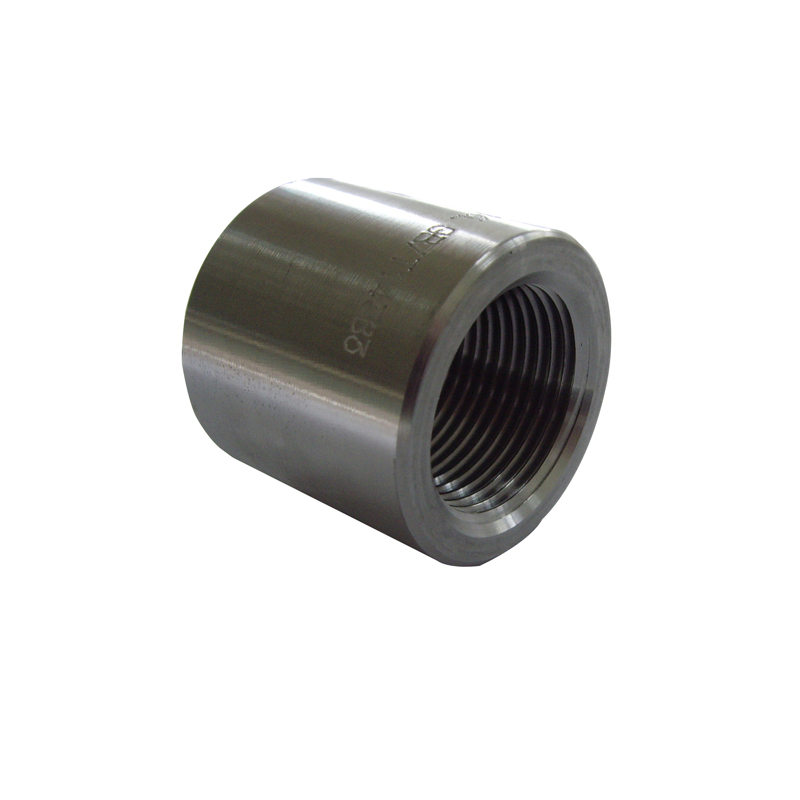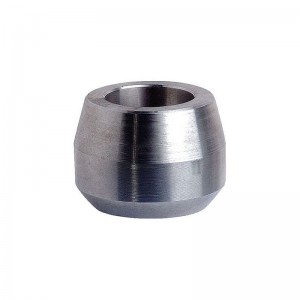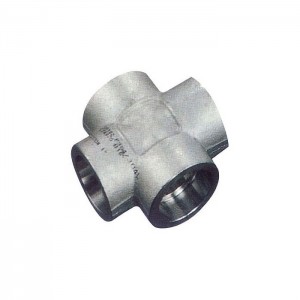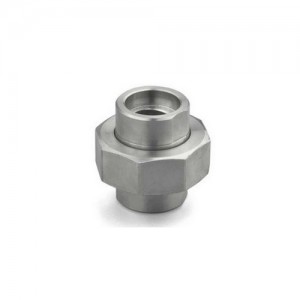Forged Steel Pipe Fittings Full Coupling
FULL COUPLING
| Size: | 1/8"-4"(6mm-100mm) |
| Specification: | Dim. Spec: ANSI B16.11 , MSS SP-79 |
| Material Spec: | ASTM A105 , Stainless Steel304, SS304L, SS316, SS316L |
| Size of raw material: | DIA. 19-85MM Round Bar |
| Type: | Elbow, Cross, Street Elbow, Tee, Boss, Coupling, Half Coupling, Cap,Plug, Bushing, Union, Swage Nipple, Bull Plug, Reduced Insert, Pipe Nipple etc. |
| Connection Type: | Socket-Weld and Threaded (NPT, BSP) |
| Rating: | 2000LBS, 3000LBS, 6000LBS, 9000LBS. |
| Marking: | 1.Carbon and alloy steel: marked by stamping.
2.Stainless:Marked by electro-etched or jet printed or stamped 3.3/8" under: brand only 4.1/2" to 4": marked brand. material. heat no. b16 (blong to ANSI B16. 11 product),pressure and size. |
| Paking: | Carton/ Plywood cases |
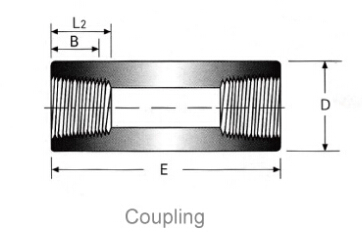
| Nominal Pipe Size | Coupling | Caps | All Fittings | |||||||
| End to End | End to End | End Wall Thickness | Outside Diameter of Band | Length of Thread Min | ||||||
| E | F | C min | D | |||||||
| DN | NPS | SCH160, XXS, 3000, 6000 | SCH160 3000 | XXS 6000 | SCH160 3000 | XXS 6000 | SCH160 3000 | XXS 6000 | B | L2 |
| 6 | 1/8 | 32 | 19 | 4.8 | 16 | 22 | 6.4 | 6.7 | ||
| 8 | 1/4 | 35 | 25 | 27 | 4.8 | 6.4 | 19 | 25 | 8.1 | 10.2 |
| 10 | 3/8 | 38 | 25 | 27 | 4.8 | 6.4 | 22 | 32 | 9.1 | 10.4 |
| 15 | 1/2 | 48 | 32 | 33 | 6.4 | 7.9 | 28 | 38 | 10.9 | 13.6 |
| 20 | 3/4 | 51 | 37 | 38 | 6.4 | 7.9 | 35 | 44 | 12.7 | 13.9 |
| 25 | 1 | 60 | 41 | 43 | 9.7 | 11.2 | 44 | 57 | 14.7 | 17.3 |
| 32 | 1 1/4 | 67 | 44 | 46 | 9.7 | 11.2 | 57 | 64 | 17.0 | 18.0 |
| 40 | 1 1/2 | 79 | 44 | 48 | 11.2 | 12.7 | 64 | 76 | 17.8 | 18.4 |
| 50 | 2 | 86 | 48 | 51 | 12.7 | 15.7 | 78 | 92 | 19.0 | 19.2 |
| 65 | 2 1/2 | 92 | 60 | 64 | 15.7 | 19.0 | 92 | 108 | 23.6 | 28.9 |
| 80 | 3 | 108 | 65 | 68 | 19.0 | 22.4 | 106 | 127 | 25.9 | 30.5 |
| 100 | 4 | 121 | 68 | 75 | 22.4 | 28.4 | 140 | 159 | 27.7 | 33.0 |
Sketch
Coupling is also called coupling. It is a mechanical component used to firmly connect the driving shaft and driven shaft in different mechanisms, rotate together, and transmit motion and torque. Sometimes it is also used to connect the shaft with other parts (such as gears, pulleys, etc.). It is often composed of two halves, which are respectively connected with keys or tight fit, fastened at the ends of the two shafts, and then connected by some way. The coupling can also compensate the offset between the two shafts due to inaccurate manufacturing and installation, deformation or thermal expansion during operation, etc (including axial offset, radial offset, angular offset or comprehensive offset); and mitigation of impact and vibration absorption. [1]
Most of the commonly used couplings have been standardized or standardized. Generally, it is only necessary to correctly select the type of coupling and determine the model and size of coupling. If necessary, check and calculate the load capacity of vulnerable weak links; When the rotating speed is high, the centrifugal force at the outer edge and the deformation of elastic elements shall be checked for balance verification.

